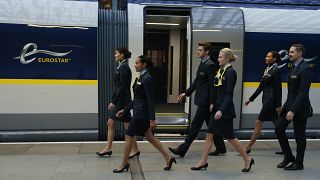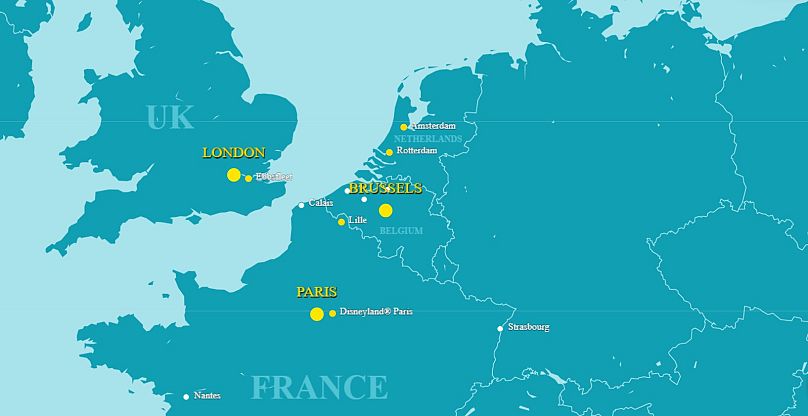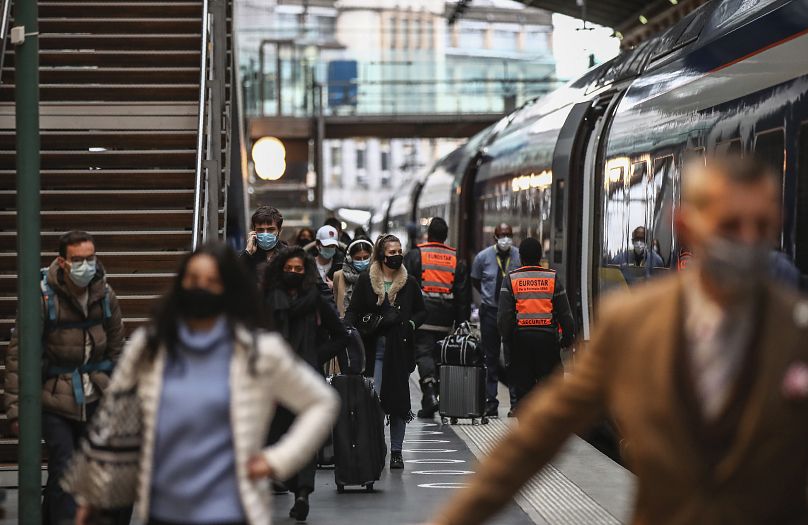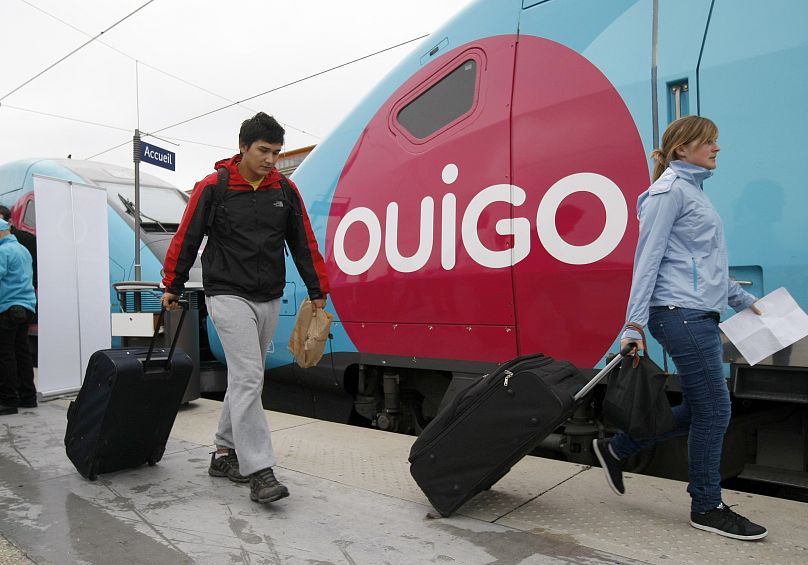Eurostar is on the brink of collapse. Like most travel companies in the coronavirus pandemic, its business has been decimated and its likelihood of survival is unclear.
The cross-Channel link has lost 95% of its passengers since March and is now running just two round-trips a day — a far cry from the two departures an hour during normal peak times. A continued outlook like this will leave the company bankrupt by spring.

"Disaster is possible," Eurostar's managing director Jacques Damas has warned after revealing cutbacks and borrowings of €450 million. He said shareholders had stumped up €220 million, but could offer little more.
The company is now looking for state support, citing airline bailouts that have cost European governments €42.8bn. British railway services, which are privately run, have received £3.5bn (€4bn).
But herein lies the problem. Eurostar is not currently entitled to the same support offered to airlines, and it isn't a national railway, so can't claim for the UK's rail support. It's also viewed by the British as a French company - and therefore France's problem - due to being majority-owned by state railway company SNCF. France, however, sees Eurostar as the UK's part responsibility as it is based out of London.
This is further compounded by the fact the UK government sold its stake in the company in 2015, giving rise to the argument that rescuing Eurostar is no longer part of Britain's remit. But can it really be that simple?
A vital link with Europe
Eurostar started out in 1994 as a collaboration between the state railway services of France, the UK and Belgium. By 2021, France's SNCF owns 55% as a majority shareholder, while Belgium's SNCB has 5%. The UK, which once had 40%, sold its share in 2015 to an Anglo-Canadian consortium of two companies: Caisse de Depot et Placement du Quebec (CDPQ) and Hermes Infrastructure.
According to transport writer Jon Worth, this part-privatisation may have cut the UK government out of its stake, but not entirely from its role. "Eurostar - in terms of its structure - is still run as something akin to a cooperation between state-owned railways," he wrote on Twitter.
It has also become a crucial link between the UK and mainland Europe. While oftentimes undercut in price by budget airlines, it can be quicker to get to a destination on Eurostar (factoring in journey times to-and-from an airport) as it drops passengers off in central city locations.
And what about eco concerns? Eurostar wins in this area, too. It is much more environmentally friendly than flying — and is therefore tipped as the travel option of the future. "A Eurostar journey from London to Paris emits 90% fewer greenhouse gas emissions than the equivalent short-haul flight," the company proudly publicises.
"We have already carried over 200 million passengers but it is up to us to boost this number and reduce emissions by carrying more and more travellers further afield or on onward connecting rail journeys."
Problems with a lack of competition
Another problem, says Worth, is that Eurostar "faces no competition from other rail firms" as it is the only high-speed passenger service to travel through the Channel Tunnel. Getlink, the company that owns the tunnel, runs a shuttle for passengers in cars, vans and other vehicles between Kent and Calais.
On the one hand, abandoning Eurostar in the pandemic could mean waving goodbye to a UK-France train link forever. This would arguably be more of a blow to the UK economy - Eurostar contributes £800m (€898m) to the UK economy each year, according to Huw Merriman, chairman of the UK parliament's transport select committee.
On the other hand, many have argued that a British bailout would be a wasteful venture as Eurostar is already an expensive service only used by the elite. "It is a deluxe product," Worth said. "It's often cheaper to fly instead."
Worth then noted that introducing competition could be an answer - although this has its own issues.
The only real sniff of competition in the last two decades has come from Germany's state railway Deutsche Bahn (DB), which revealed plans in 2010 to launch its own high-speed service from London to the continent. This idea, however, was dropped in 2018, reportedly due to "changes" in the "economic environment". DB refused to comment on whether Brexit was a factor in the decision.
Added to this was also the issue of getting hold of trains that are suitable for running through the tunnel.
As an alternative, Worth said: "You go back to the public service ethos. Low-cost rail for the masses. See how SNCF has offered OUIGO and Thalys IZY to cater to the lower-cost market in France [...]
"The whole joyous ethos of the Channel Tunnel's construction was to allow more UK-France travel and to open that up for more people. Where has that spirit gone in British politics?
"The reaction to Eurostar's woes shouldn't be: 'It's just for the privileged man, shrugging, ditch it!' but 'make this high-speed rail for everyone!'
"It strikes me that the idea that international travel ought to be an aspiration for anyone from the UK - and that they ought to be able to do this by train - has been completely lost. Whether this can be solved via competition or something more public service orientated, offer needs to be debated. But Eurostar cannot be left to fail — it is far too important for that!"
So, what now?
The French government promised last week that it would not abandon Eurostar, and confirmed talks had been underway with UK officials for some time. Word on the UK side, however, has been a little more quiet.
Mark Smith, a former rail worker who now runs train website The Man in Seat 61, suggested the UK should consider offering all the support it can in exchange for six trains in Eurostar's fleet.
"[We] could lease back to them later, or (smiles cunningly) offer to a start-up operator as kit already Tunnel-compliant to open up the London-Paris rail market to competition.
"Faced with such a prospect, SNCF might stump up the funds, Eurostar survives, I win. Or if it’s really a matter of survival, they accept the deal, Eurostar survives, I get my money back and open up international rail to competition (so everyone’s a winner)."
Meanwhile, transport specialist Yves Crozet, a professor at the University of Lyon, said an Anglo-French solution probably wouldn't be as easy to reach as Smith's idea suggested. This, he told a British transport select committee, would be because he expected to see some "arm-wrestling" between the two first.
"If you want to keep the Eurostar, you have to give a lot of public subsidies. It is the same consequence that we have after a war," he said. "We will have probably arm-wrestling between the UK and France about that.
"Clearly it is not possible to stop Eurostar. We need Eurostar."


